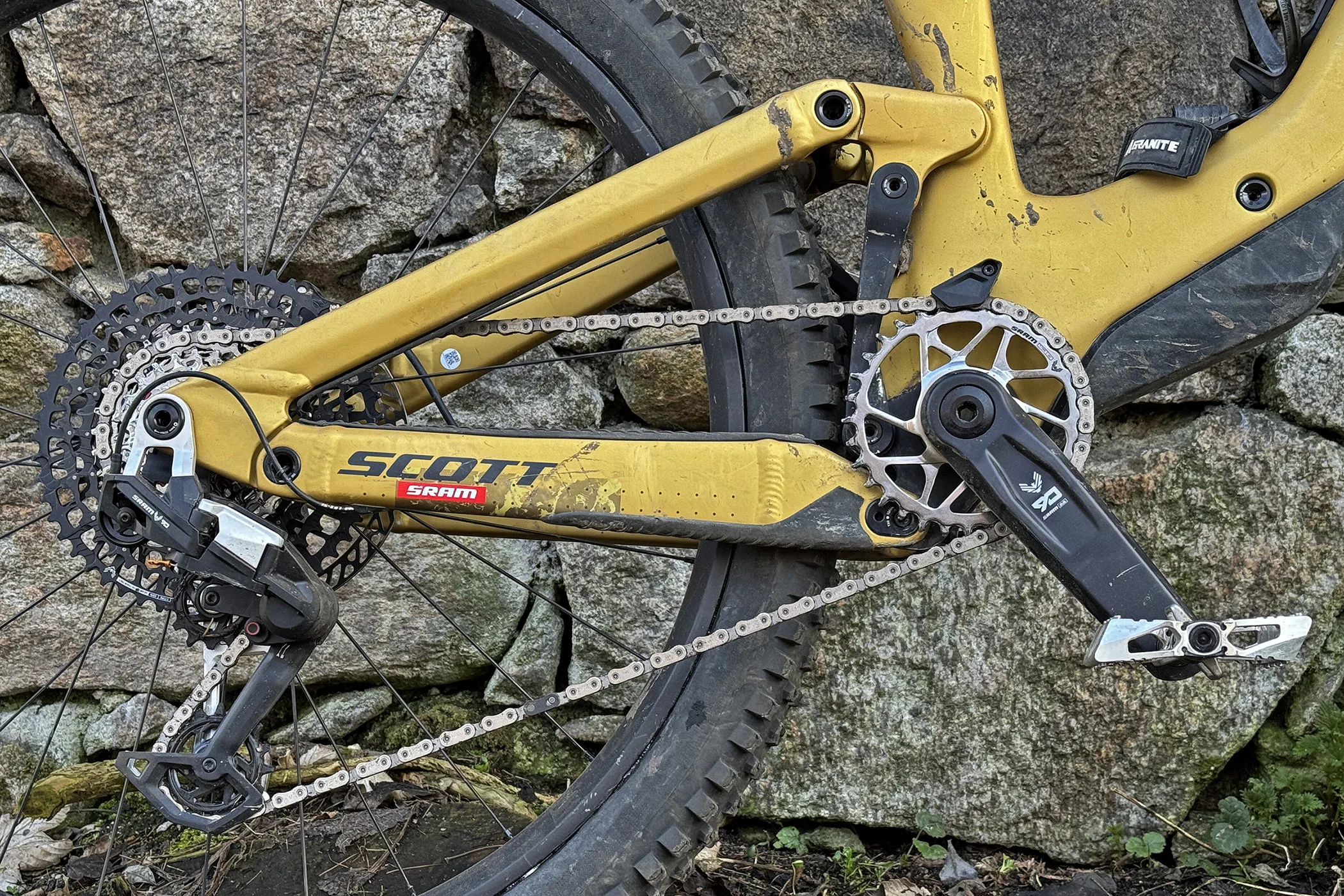The all-new SRAM Eagle 90 Mechanical Transmission that debuted today is exactly what I was looking for in a new drivetrain for my super trail bike. Last fall, I built up a killer long travel mountain bike that could pedal up as well as it shredded down. It was gonna see a lot of abuse. The ridden hard and put away wet kind.
So, I needed a drivetrain that was: mechanically simple, built tough, but also not so expensive that it wouldn’t break the bank if/when I needed to replace it. I also didn’t want to sacrifice gearing range or shift precision. And frankly, I didn’t want to have to remember to keep it charged.
Last fall, there really wasn’t anything that checked all those boxes. Today, Eagle 90 Mechanical changed that.
SRAM Eagle 90 Mechanical is affordable, simple & built tough
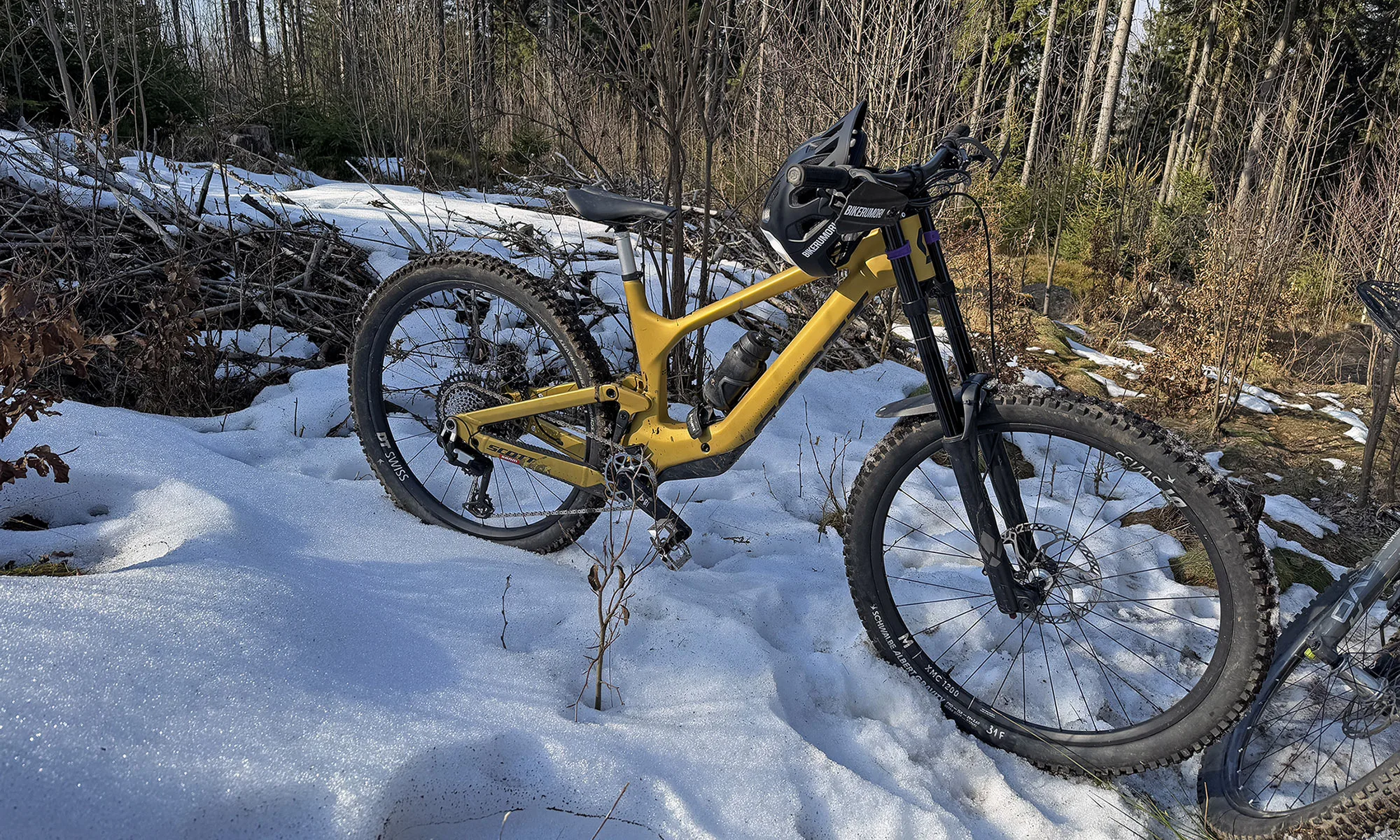
In late 2024, I got ahold of a new Scott Ransom frameset to build up into a bike that I could ride the most technical trails I could find. Some days pedaling to the top of mountains for all-mountain adventure rides, other times turning back-to-back enduro, freeride & DH laps in bikeparks.
This amazing bike pedals like any mid-travel trail mountain bike in its reduced travel Climb mode. Then, ‘volume spacers at the touch of a button’ Ramp Control mode turns it into a poppy enduro or bikepark shredder. And in full open Descend mode, well… it descends almost like a DH bike.
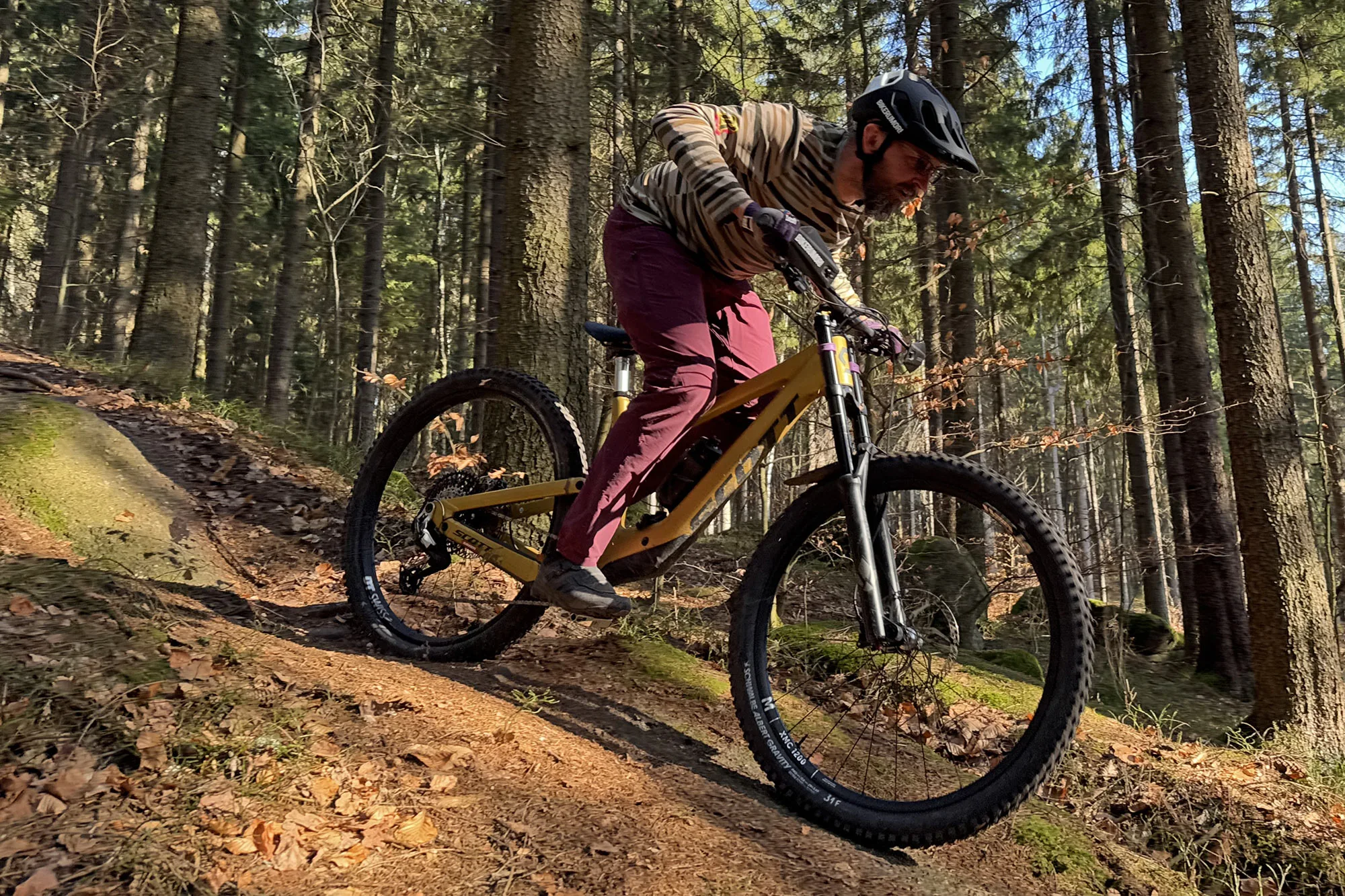
Add in the most plush MTB fork I’ve ever ridden with this 180mm double crown Formula Belva and some of the most powerful brakes ever made with the Trickstuff Maximas, and this bike shreds.
So, I wanted a drivetrain with top-tier shift quality & range to match the bike. But at the same time, something that wouldn’t feel overly precious. I knew I was going to bash my derailleur against plenty of rocks, maybe even crash the bike off something stupid. So, I refused to put a 480€ GX AXS electronic derailleur on a bike that was gonna see such abuse. (I don’t even want to think about the 700€ AXS derailleurs that debuted the Full Mount that my frame was longing for!)
You see, I’d already slightly cracked a GX AXS derailleur last season and struggled to figure out what went wrong as it gradually stopped shifting. I didn’t want a repeat of that.
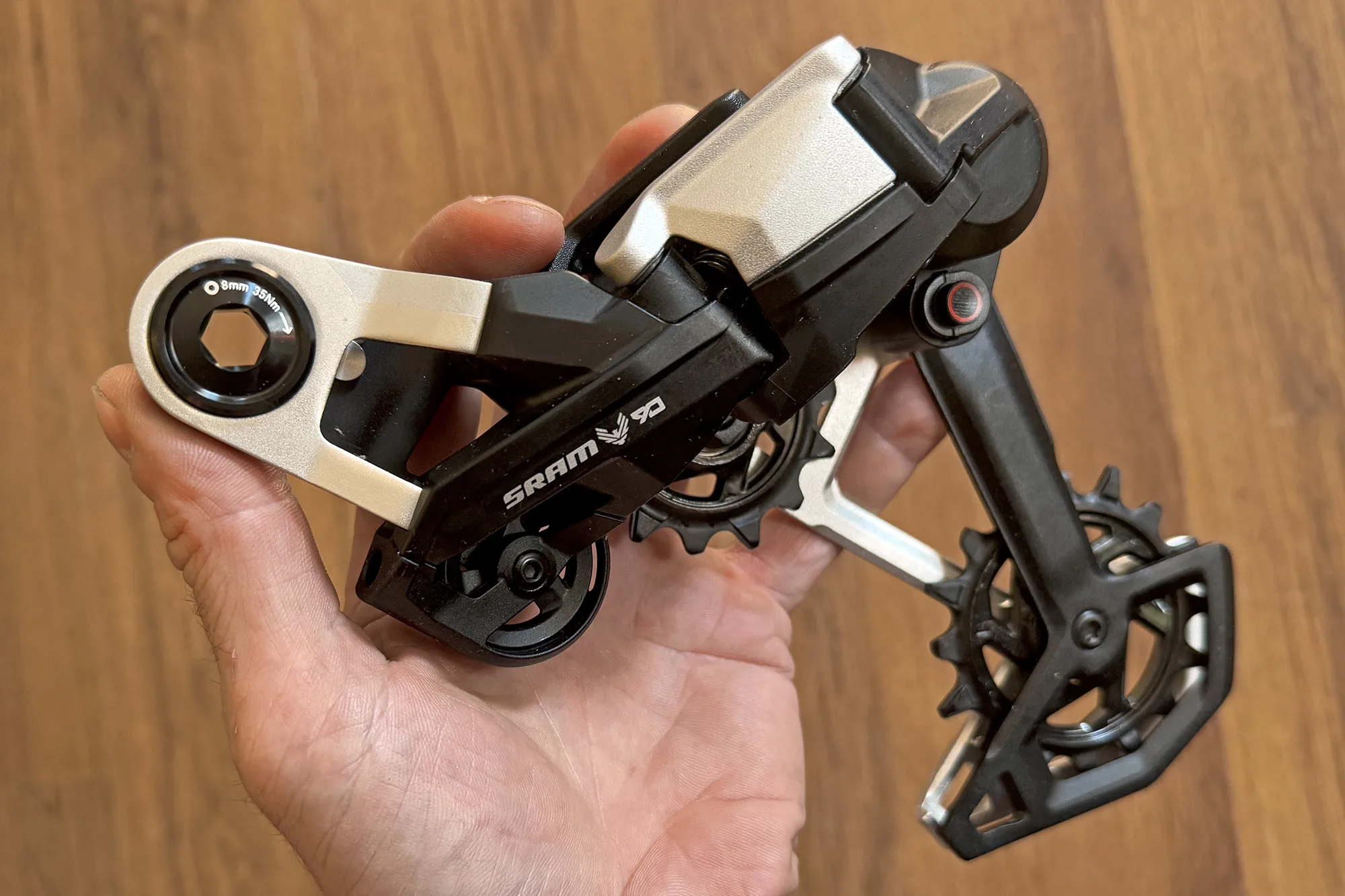
So enter the return of the mechanical derailleur, much to my delight.
Mechanical isn’t dead.
Eagle 90 Mechanical 12-speed derailleur
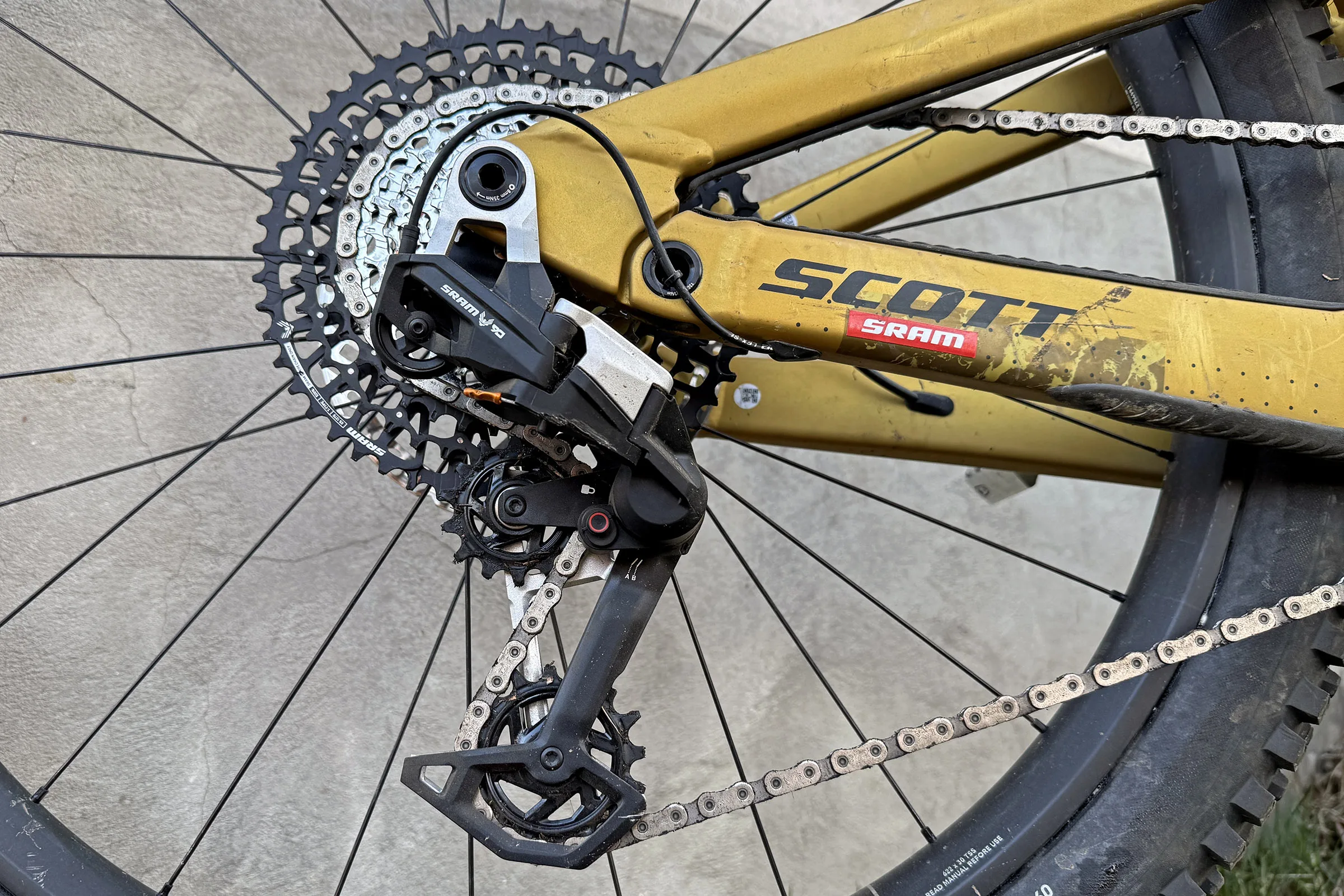
The heart of this new groupset is of course, the all-new SRAM Eagle 90 Mechanical Transmission rear derailleur that launched earlier today.
I already wrote in great detail everything that stands out as important in my mind, for this relatively rare product launch that is both genuinely innovative tech AND actually affordable. Counter to most disposable consumerism trends, it’s also easily serviced and is rebuildable for once you inevitably break some part of it while mountain biking technical trails.
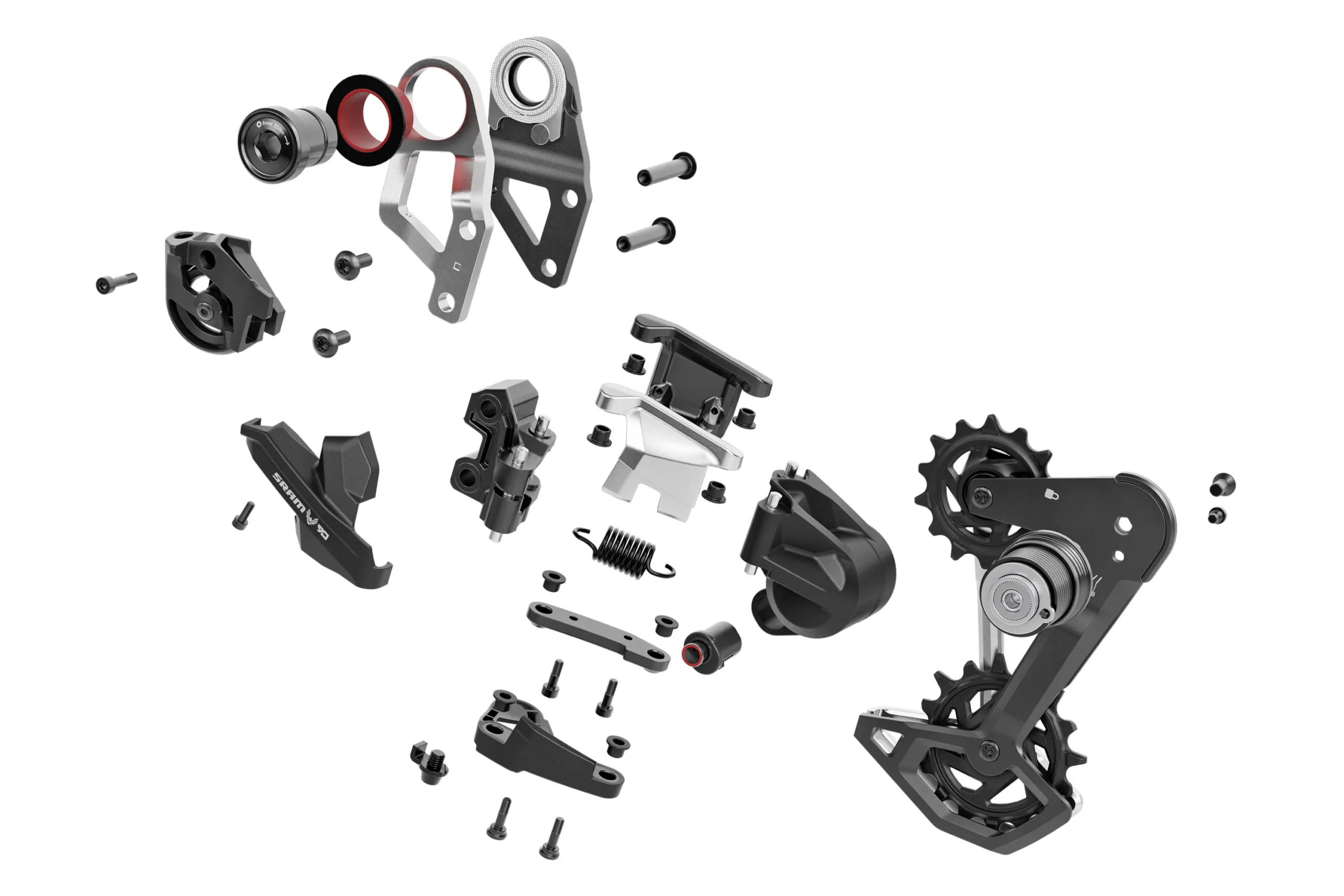
It makes me happy to see this exploded view from SRAM with all the service parts that are available, since I’m sure I’ll be buying some of these parts down the line to rebuild or repair this thing!
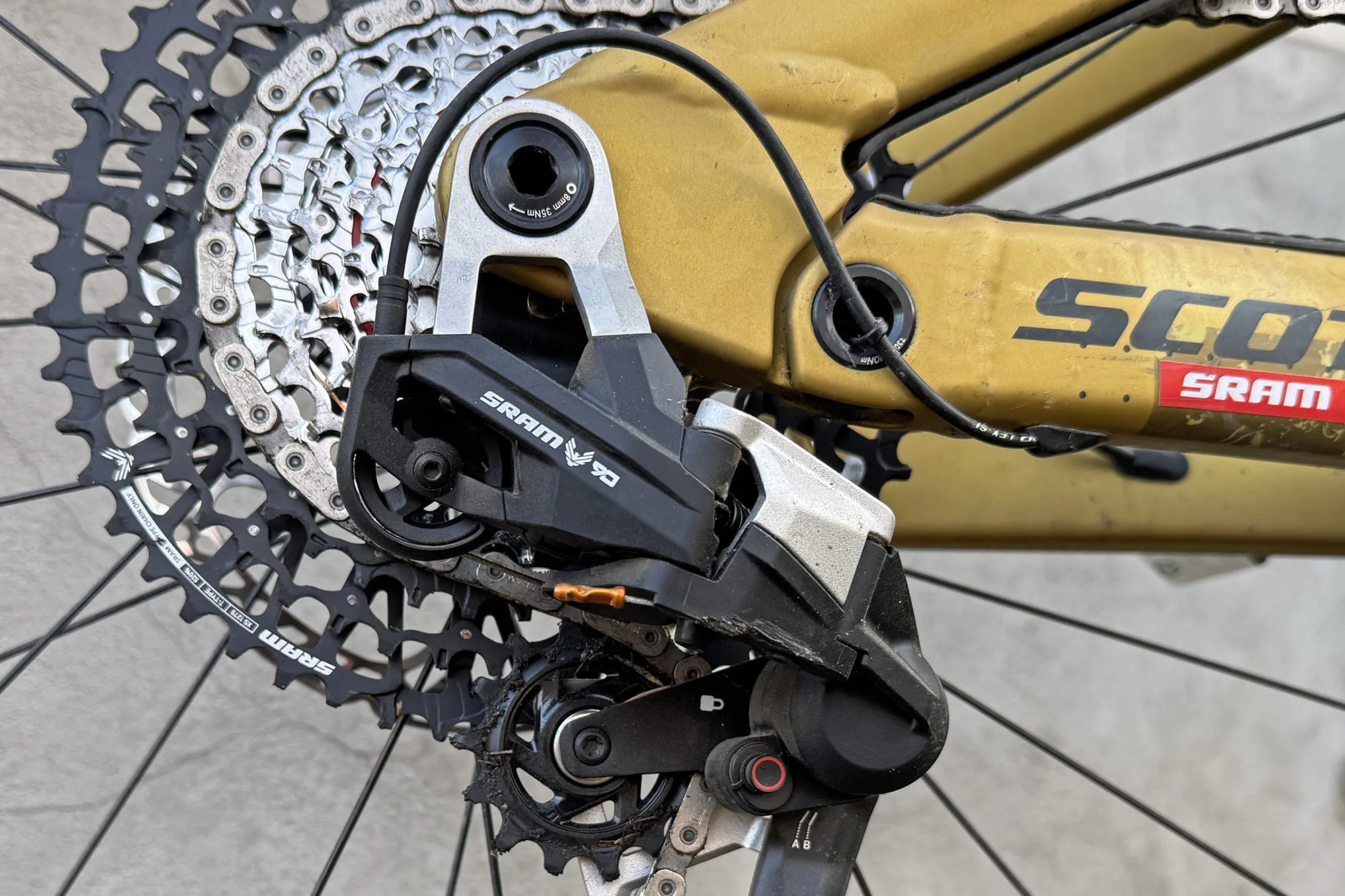
In fact, I’ve only been riding this new SRAM Eagle 90 Mechanical Transmission for just over one month now. And yes, I’ve already scraped it up a bit on some of our tight rocky enduro trails.
Yes, those scrapes are on the non-structural plastic skid plate mounted to the outer parallelogram link. And yes, it is a standard replacement part available from SRAM.
An easy replacement when I damage it a bit more.
SRAM Full Mount benefits for mechanical too!
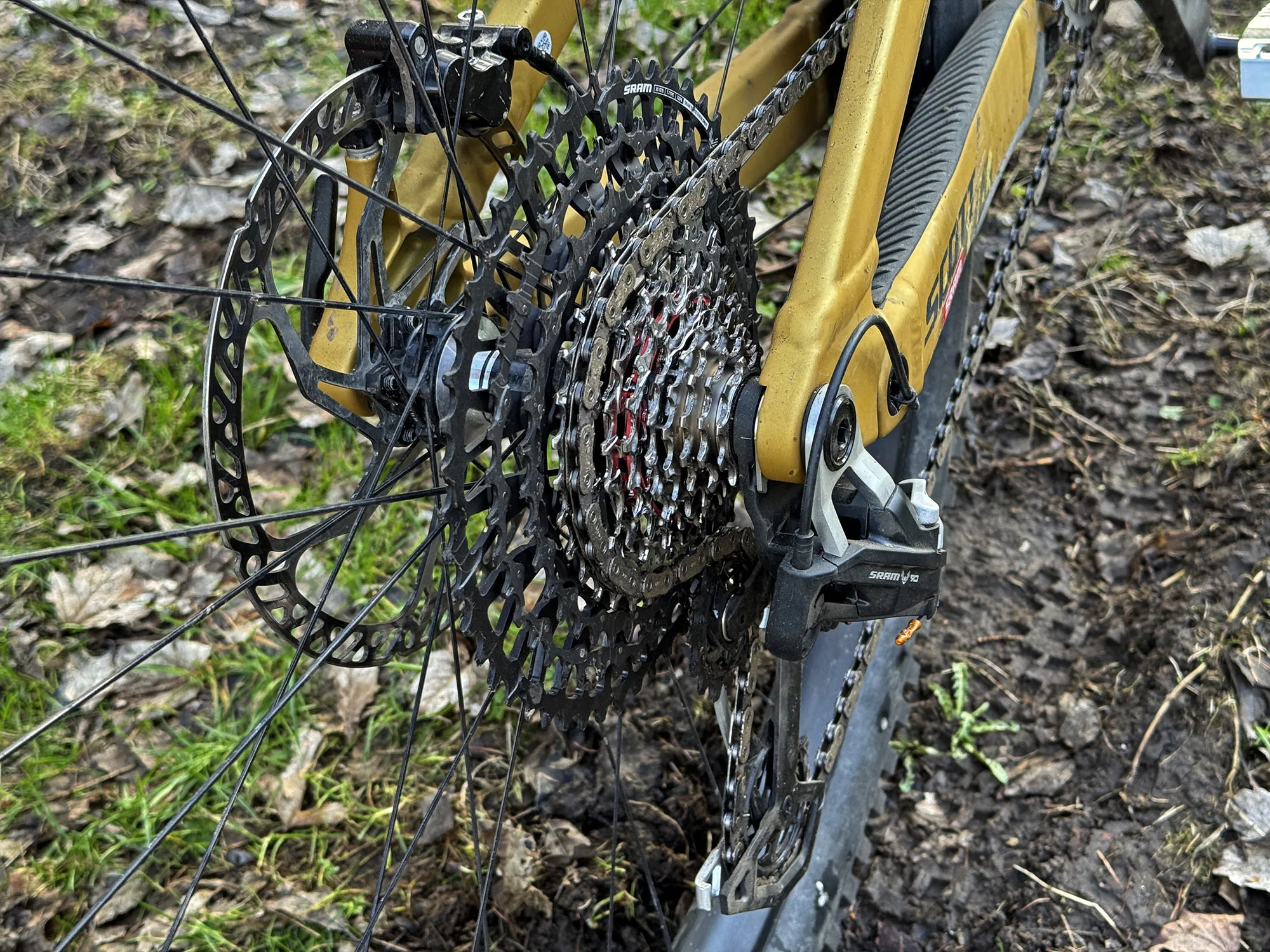
Besides the obvious simplicity of mechanical actuation like all classic derailleurs, and the new modular rebuild-ability, it’s the hanger-less direct mount (SRAM calls it Full Mount) to your frame that sets the new SRAM Eagle 90 Mechanical Transmission apart from all mechanical derailleurs before it.
While many (myself included) lament the loss of the sacrificial derailleur hanger in a crash, there’s no denying that eliminating the hanger gets rid of a lot of the woes of shifter adjustment. No high/low set screws to prevent chains from jumping over the top or off the bottom of your cassette. And much easier shift tuning.
SRAM also touts no more need for a B-screw adjustment, but you still need to get the knurled ring friction plate in the correct place before you start. It’s easy to do, and SRAM has a great troubleshooting page to walk you through how to do it. But I will say that more than half of the Transmission-equipped test bikes I’ve ridden in the past 2 years did not have the knurled ring correctly aligned, whether for not adjusting them correctly from the start in Setup Mode, or just not greasing & torqueing the T-type derailleur to the full 35Nm as required.
An all-new stealthy mechanical shifter
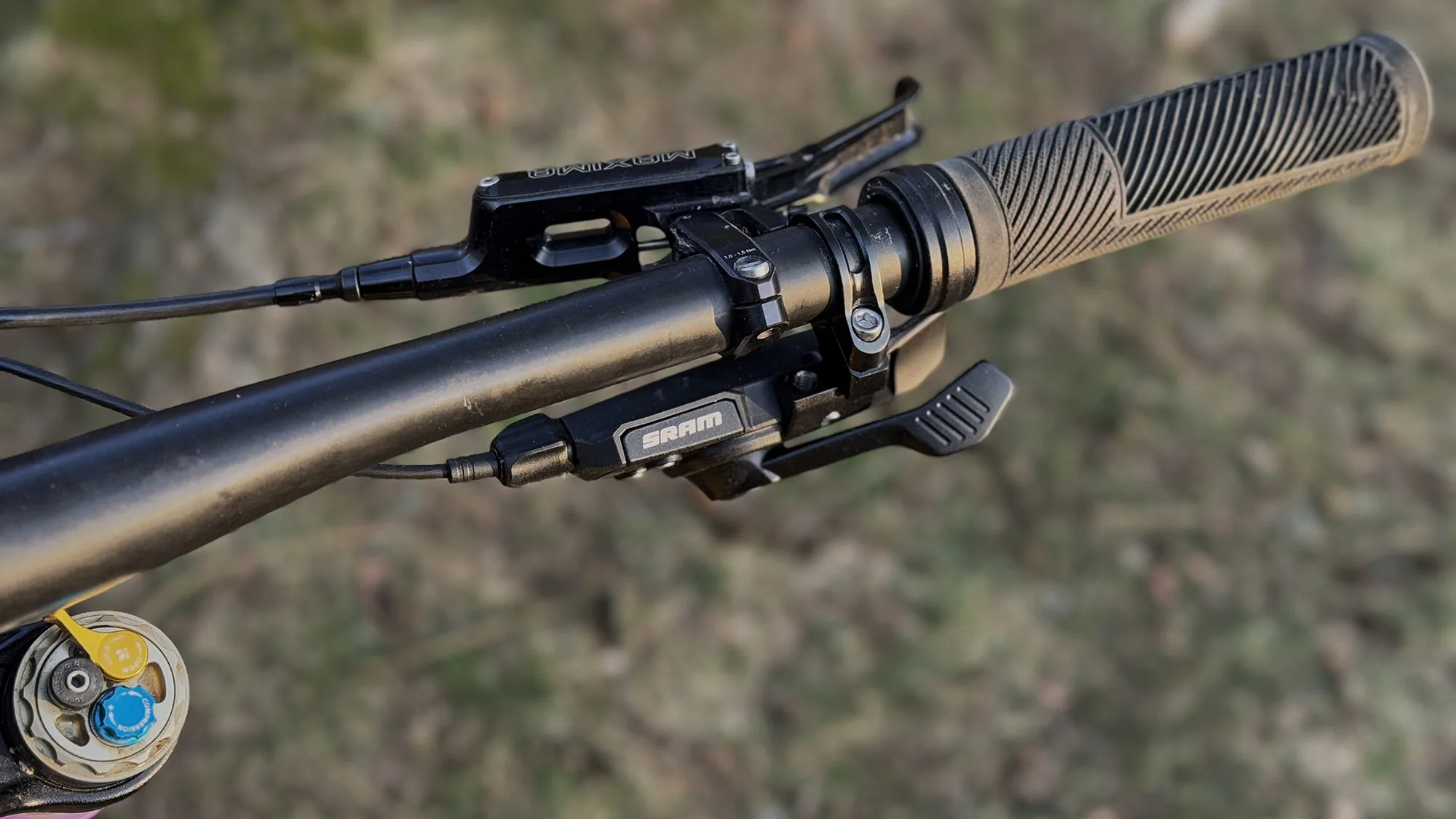
A fancy, rebuildable mechanical derailleur is nothing without a good shifter to actuate it.
The SRAM Eagle 90 Mechanical Transmission shifter is simple and functional, if a little bit heavy and seemingly bulky. But really, it only looks big in your hand or on the workbench before installation.
The reason the Eagle 90 Mechanical shifter looks a bit bigger is that SRAM redesigned the shifting mechanism to align the body of the shifter and the cable exit with the handlebar, like the Stealth hose routing on all of the latest SRAM brakes. Once on the bar, the bulk of the shifter all but disappears.
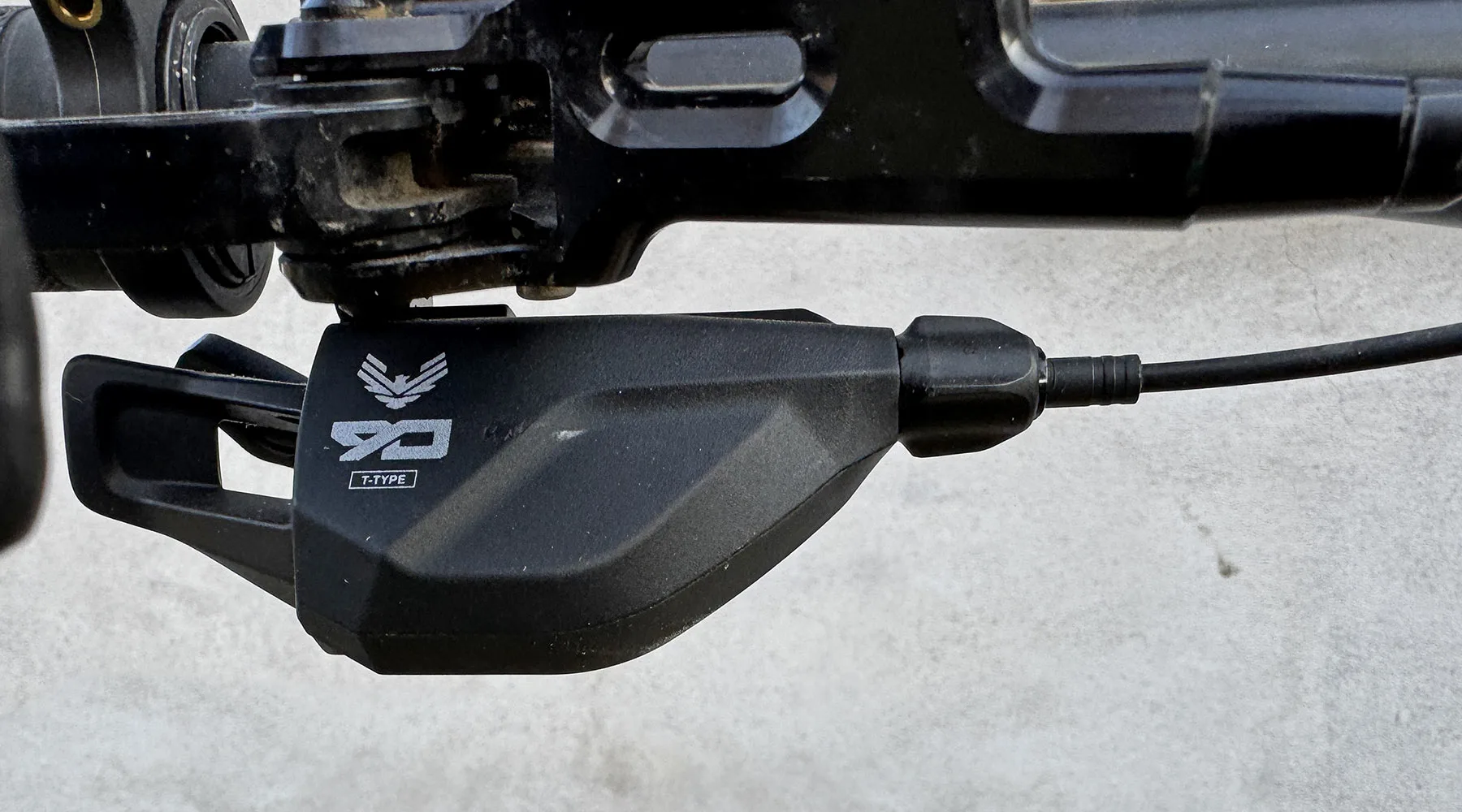
The other important bit about this shifter is that mine shifts 2 gears with one throw of the lever.
That makes its shifting actually quicker than Eagle AXS Transmissions, but it does mean one limitation. You can shift one gear at a time under full pedaling load. But to shift multiple gears, you have to ease back on your pedaling inputs, just like all previous non-Transmission/non-LinkGlide drivetrains.
That means this 2-Click shifter is not compatible with bikes (which decide on their own when to stop pedaling). And so there’s a separate Single-Click mechanical shifter for eMTB setups.
Burly alloy Eagle 90 crankset with steel chainring
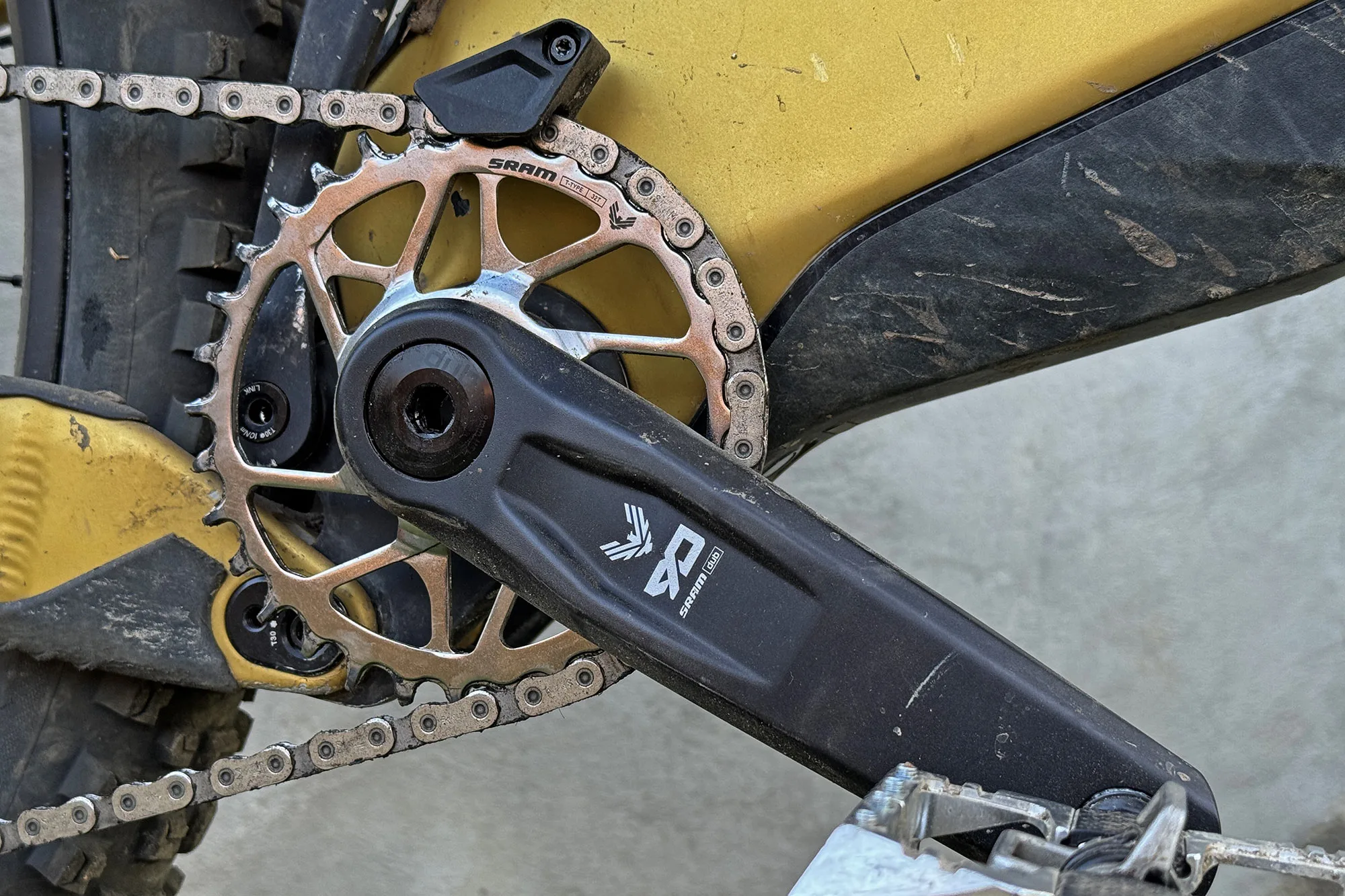
The Eagle 90 Transmission crankset is a burly, no-nonsense affair. It’s just a 3D-forged aluminum set of crankarms on a DUB bottom bracket spindle. It features an 8-bolt direct mount interface, and comes with a heavy-duty stamped steel chainring.
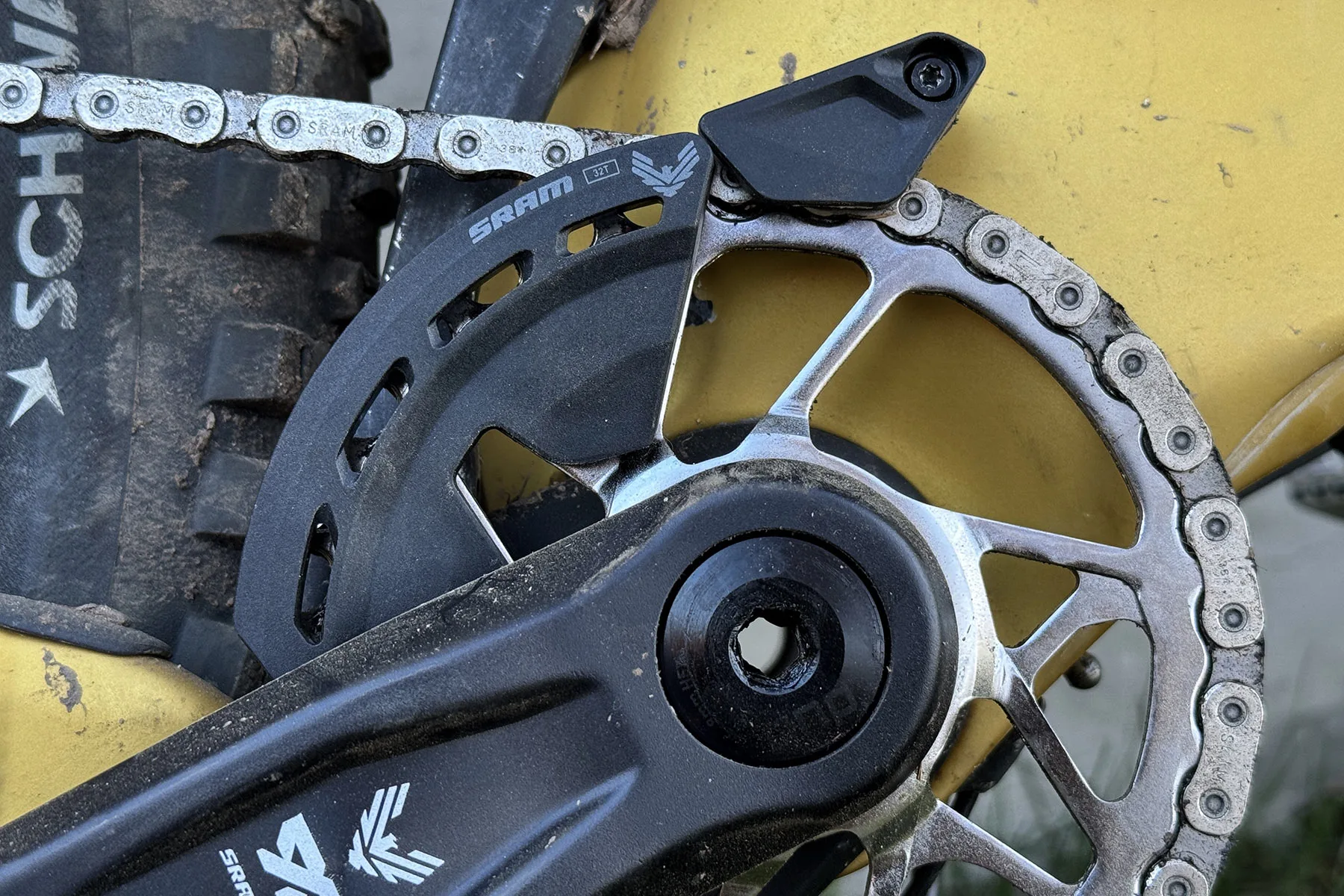
The Eagle 90 cranks come with 2 composite bashguards that bolt on directly to the chainring (ring size specific). It’s the exact same ones that come on X0 AXS and GX AXS T-type cranksets, too.
I was pretty excited to have one bash guard attached to my chainring since I almost always bash into rocks & logs with my right foot forward. But I forgot that I wouldn’t have clearance because my bike has a mini chainguide up top.
It’s quite a shame that SRAM doesn’t include some provision to space the bash guards out away from the ring, since a huge number of bikes include similar custom upper mini chainguides these days. I might look into figuring out if there’s a 3D printed spacer so I could still run one of these?
Actual weights – mechanical shifting
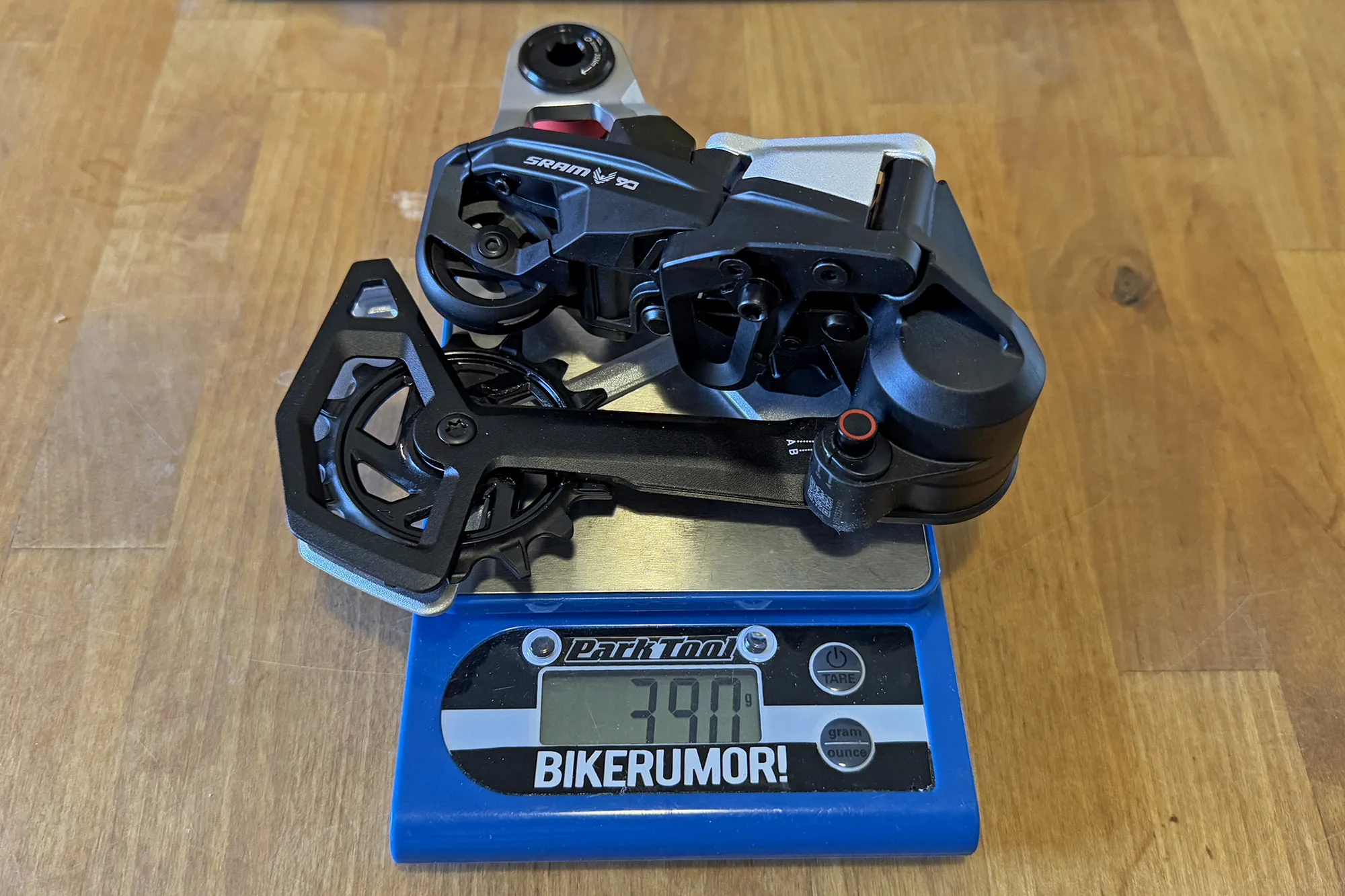
The Eagle 90 Mechanical derailleur weighs in at 390g, with a mix of aluminum, reinforced composite (likely fiber reinforced nylon?), and steel construction.
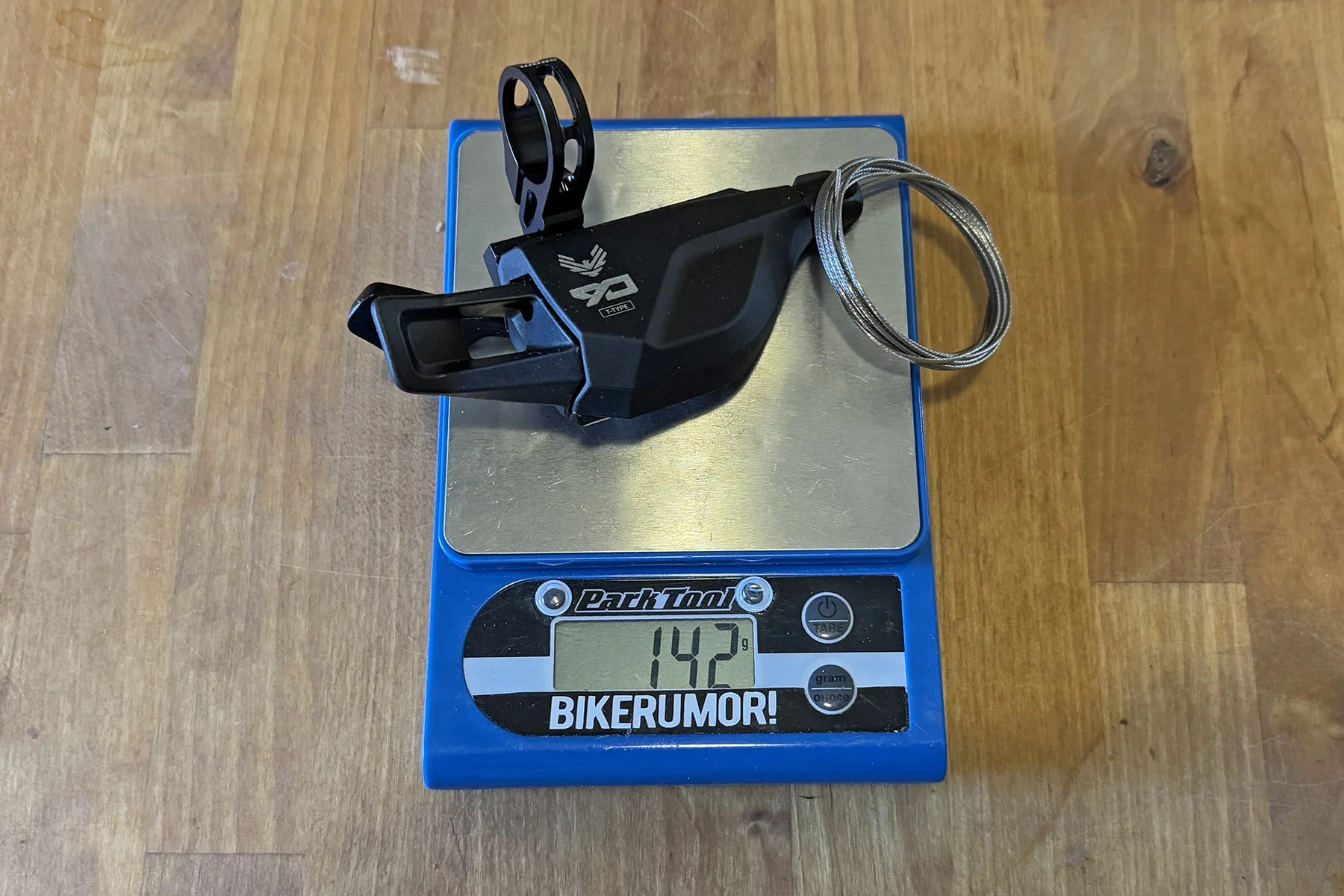
Its matching Eagle 90 shifter weighs another at 142g, including its own band clamp and the uncut shift wire. Not here on the scale, my full-length 4mm shifter outer housing added an extra 45g. That makes for a 577g grand total to shift mechanically.
I’m a little surprised that that is somehow heavier than the 539g shift system weight for T-type GX AXS (a 492g derailleur), the 521g system weight for X0 AXS (474g derailleur), or the 491g combined weight of XX SL AXS (444g derailleur) from the first batch of T-type including their 47g AXS Pod Controllers.
I know it comes down to heavier metal components to align with the cheaper price point here. But it hurts a bit to see this heavier than all those wireless AXS shift setups when Eagle 90’s weight doesn’t include two batteries, a powerful little electric motor, or electronic control systems.
I guess that just means Dangerholm will have a lot to work with when he gets around to tuning one of these for his next ultra custom build. Remember that the original XX Eagle mechanical drivetrain was often built into the world’s lightest mountain bikes!
Actual crankset weight
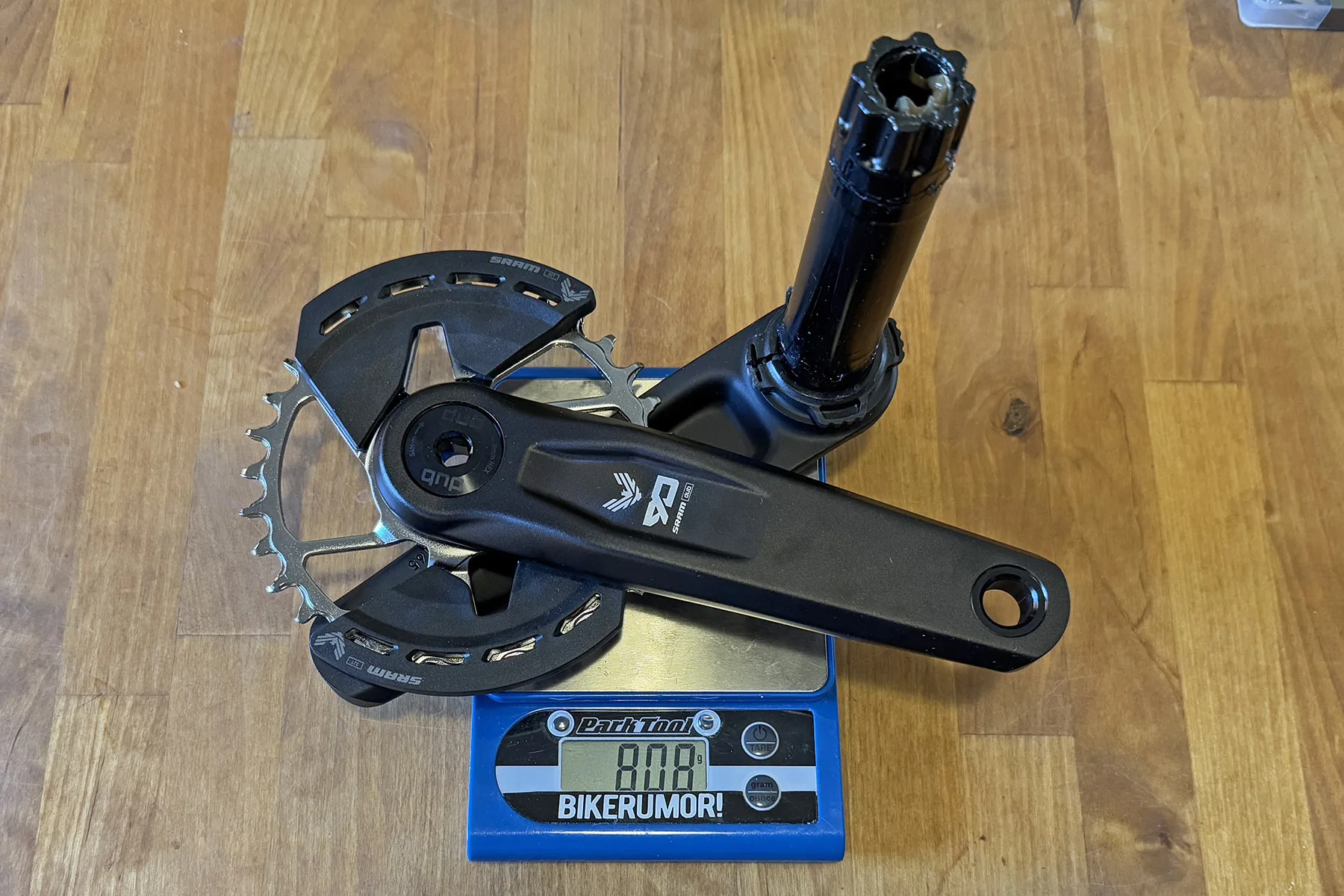
The 90 crankset & steel chainring isn’t exactly light either, at 808g for 165mm arms with bash guards, compared to 733g for the same GX setup. Although, I did get my cranks down to 728g by removing the 2 sets of 40g bash guards. I would have loved to have them, if they didn’t clash with my bike’s mini chain guide, which took functional priority.
Weight-wise, the rest of the SRAM Eagle 90 Mechanical groupset reuses a few of the same parts straight from GX AXS, including the 443g 10-52T T-type cassette, the 285g FlatTop chain, and in my case on this bike, a 76g PressFit DUB bottom bracket.
First Impressions

My first thought was this is a pretty nice feeling drivetrain for its $670 / 730€ complete groupset pricetag.
It could even be more affordable than that too, if you were upgrading a current SRAM mountain bike groupset. Buy a $190/205€ 90 derailleur, $50/55€ 90 shifter, $30/35€ 70 chain, a $215-250/240-300€ 1275 or 1270 cassette depending on your current wheels, and $18-20/20-22€ 70 or 90 chainring depending on your current cranks. A minimum upgrade cost of $503/55€.
(It’s wild that the most expensive thing in this new group is the carry-over T-type cassettes from GX or S1000, right?)
Next to notice was how simple it was to put this on the bike.
With no set screws and no derailleur hangers, you just bolt this puppy to your bike and go. SRAM calls it “prepare, hang, tighten”. Their app will help you set your chain length, or you just do it old school like me. Then you hang the derailleur loose in its setup pin position, connect the chain, release the cage spring, and tighten the derailleur into place. Then, simply tension the shift cable and tighten that down, and easy-peasy derailleur adjustment with the shifter’s barrel adjuster.
It was weirdly quick and easy. Once on the trail, it only required a few quarter turns of that barrel to make shifting perfect.
Certainly the easiest mechanical derailleur setup I’ve installed in the last 30 years.
On Trail Riding Thoughts
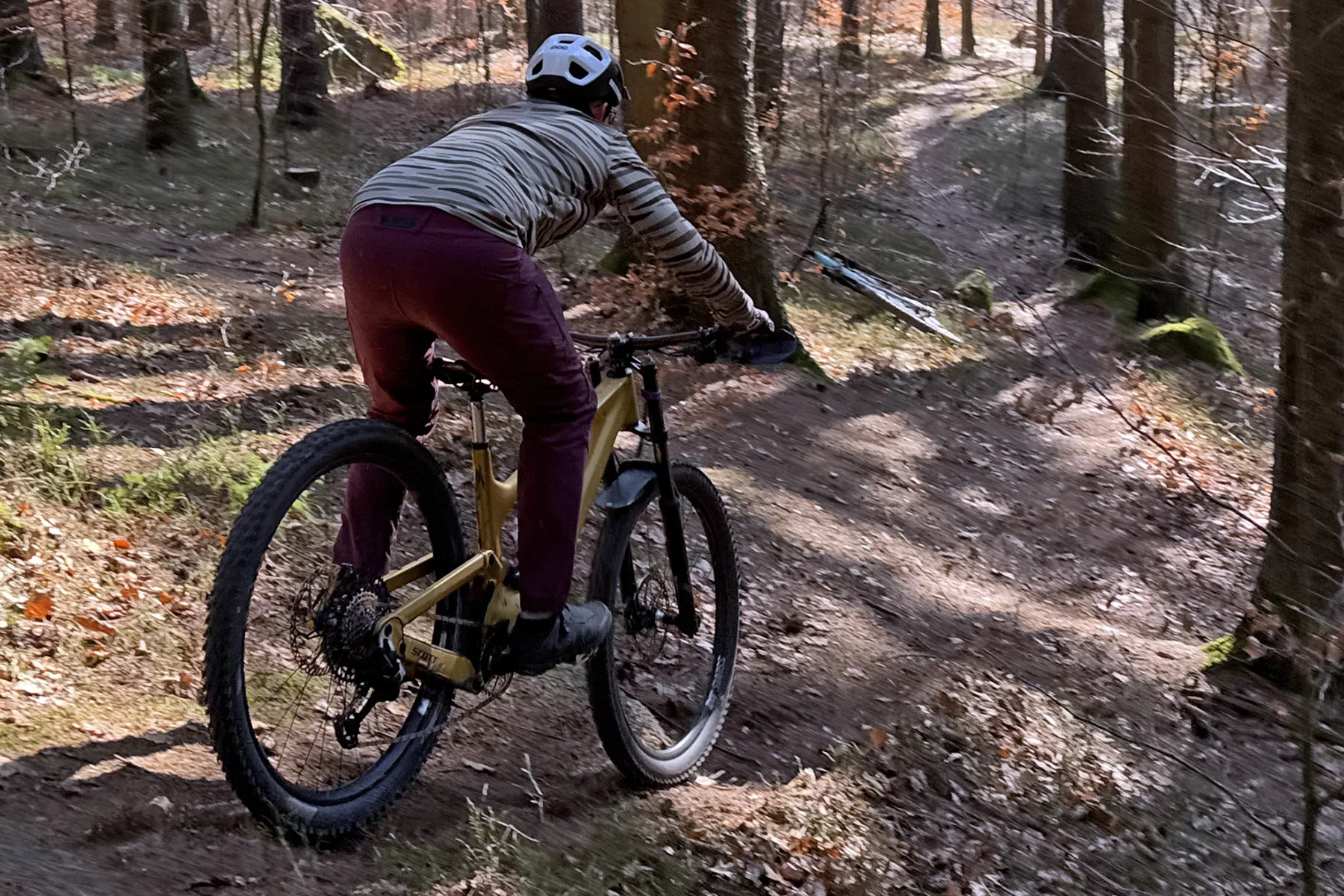
Out on the trail, it just works. Shifts are crisp, with positive lever feedback. And it was easy to fine-tune.
Eagle 90 Mechanical just does its job, delivering the same shifting and riding feel as GX AXS Transmission. It feels the same because you have the same chainring, flattop chain, and the exact same XS-1275 Transmission cassette with the same shift points and ramps.
The biggest difference compared to the electronic T-Type drivetrains is that the Eagle 90 setup here on a pedal-powered bike actually shifts quicker, with more positive shift feedback at your thumb. Since mine isn’t an eMTB-approved shifter, I get 2 shifts with one throw of the lever, which I really appreciate when I’m about to quickly go up hill and want to dump a bunch of gears.
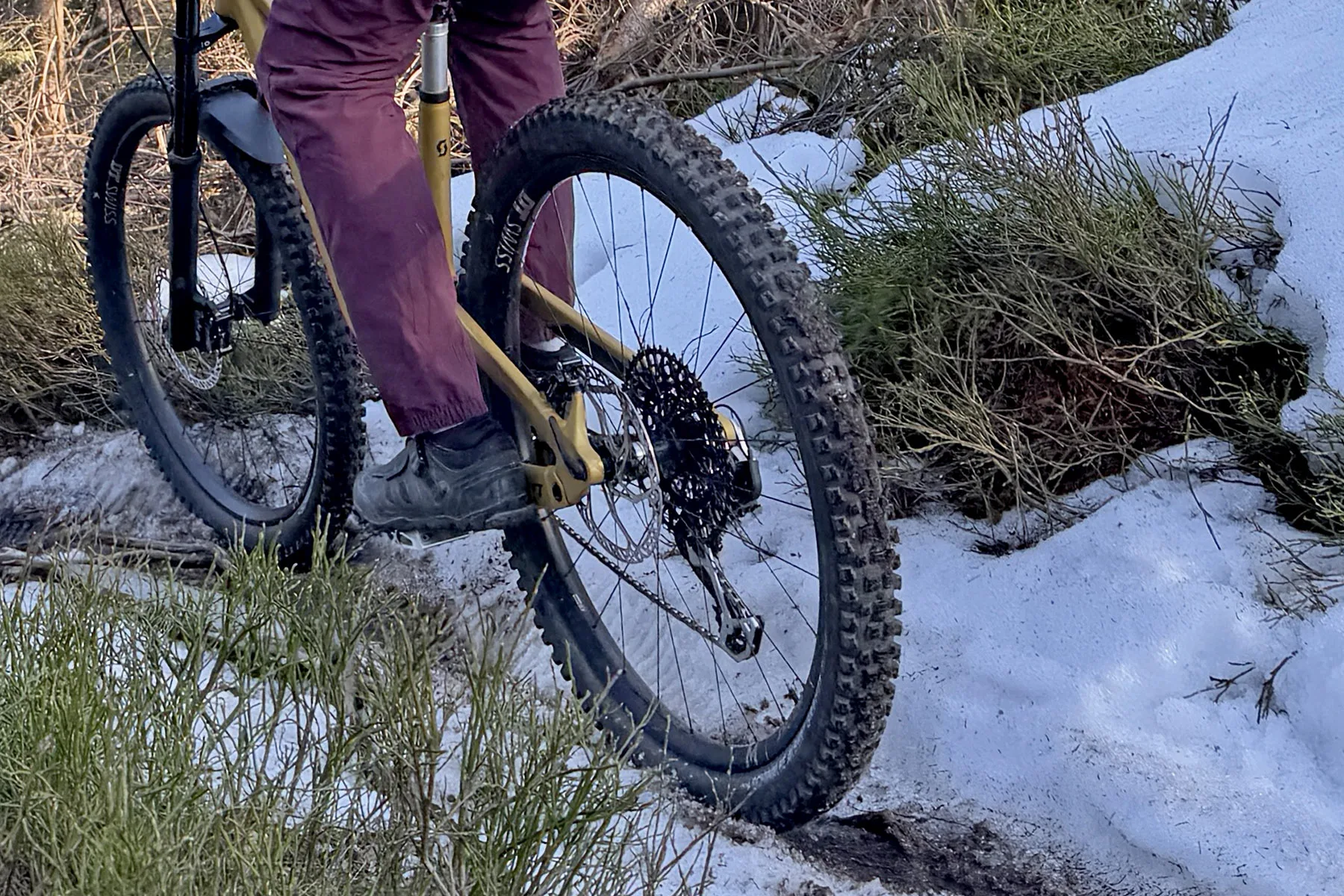
And then, there’s the durability – both real and perceived.
After wheels probably, the rear derailleur is the single component that sees the most abuse, how and where I ride. Almost every season, I have to replace an MTB derailleur cage, or at least bend one back into shape. It’s reassuring that if I do break this thing, it will be easy to get replacement parts for it. And even if I had to replace the whole thing, it’s not all that expensive either.
Parting thoughts on Eagle 90 Mechanical Review
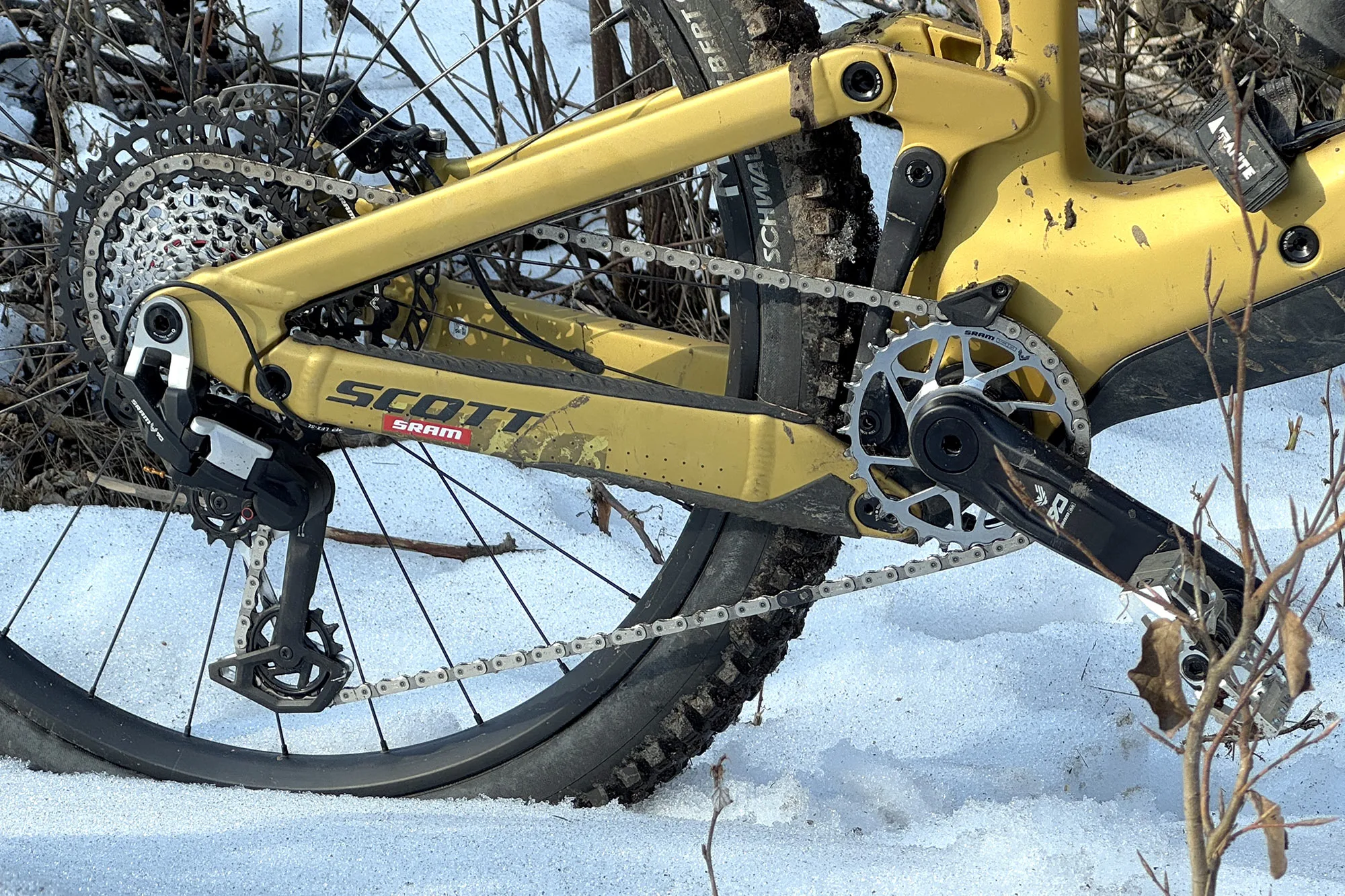
Look, the new SRAM Eagle 90 Mechanical Transmission isn’t entirely perfect. I’d love to see the derailleur and shifter to each be a bit lighter. There’s no reason besides market positioning that SRAM couldn’t have made this lighter than a GX AXS shifter/derailleur combo, what with no batteries or electric motors to account for.
And realistically, Eagle 90 would pair really well with an XX crankset for more weight savings and a more premium feel.
But what makes this groupset great is so hard to argue with: no batteries to charge, no firmware to keep up to date, and much more affordable pricing. Just simple classic cable-actuated shifts. A solid direct Full Mount install that requires very little setup adjustment. And now with a robust modular construction that should be easy to keep running for years to come!
